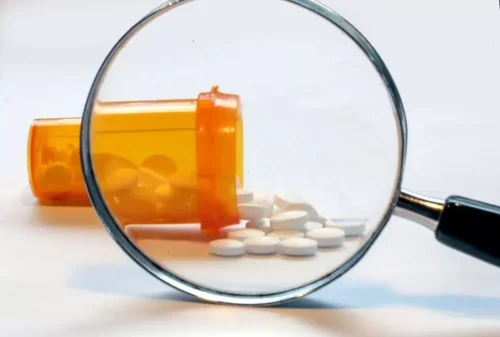
Additionally, the NIAA advises that studies have indicated that heavy alcohol use and AUD have links to increased surgical complications. It also suggests long-term alcohol use may increase the dose requirements for general anesthesia. But sometimes, a blood clot can form in — or travel to — an artery that supplies your heart or brain with oxygen-rich blood. When you’re injured, blood cells called platelets rush to the injury site. Platelets also release proteins called clotting factors that form a plug to close the hole.

How does alcohol consumption affect my high cholesterol or risk of other cardiovascular issues?
Over time, excessive alcohol use can lead to an increased risk for cardiovascular events, such as a heart attack or stroke, because of the ways it affects the blood and circulatory system. Research has found that alcohol affects the process of blood coagulation. “Coagulation” is a term used to describe the process of blood cells known as platelets sticking together. When a person experiences an injury, those platelets travel to the area to form together into a blood clot to stop the bleeding. According to the above review, daily drinking of significant amounts of alcohol can increase platelet aggregation and reactivity, meaning it may increase the risk of blood clots.
Seeking Professional Help
It’s important to note that the impact of alcohol on healing can be influenced by various factors, including the amount and frequency of alcohol consumption, overall health status, and individual differences. If you or someone you know is struggling with alcohol-related health issues, it’s crucial to seek professional guidance and support. Furthermore, alcohol can also interfere with the production and activity of clotting factors, which are essential for the blood clotting process. Chronic alcohol consumption can lead to deficiencies in these clotting factors, further impairing the clotting ability of the blood. The Centers for Disease Control and Prevention (CDC) reports that the health benefits could be related to genetics and not to alcohol consumption at all. Just like the Dietary Guidelines, AHA and the CDC do not recommend alcohol consumption for individuals who do not already drink.

Blood Thinners FAQs
- Alcohol can make platelets less sticky, resulting in a reduced ability to form a stable blood clot.
- Among these is the activation of mitogen-activated protein kinases (MAPK) signaling cascades.
- Consuming alcohol will thin your blood, making you more susceptible to heavy bleeding or bruising if you experience an injury.
Unfortunately, only 1 in 4 of adults who have high blood pressure have their blood pressure under control, meaning there is a lot of room for improvement to help these individuals better manage their condition. Drinking alcohol while on blood thinners can exacerbate the effects of both substances and reduce the blood’s ability to clot. If you’re alcohol as a blood thinner taking Eliquis, you might be wondering how much alcohol, if any, is safe to consume. The guidelines generally advise limiting alcohol consumption to no more than 1 drink per day for women and no more than 2 drinks at a time for men when taking Eliquis. However, these are general recommendations and individual circumstances may differ.
Recommendations for Alcohol Consumption While Taking Eliquis
In terms of stroke subtypes, compared with nondrinkers, current alcohol drinkers have an increased risk (~14 percent) for hemorrhagic stroke (Ronksley et al. 2011). Since blood thinners are designed to thin the blood and alcohol has that same effect, drinking alcohol while on blood thinners should be avoided to prevent excessive thinning. That said, some studies have found that low to moderate consumption of alcohol is generally safe for people on blood thinners.
- The man had been discharged from the ICU after about a month in the hospital and was undergoing rehabilitation in the general ward while taking the probiotic.
- Talk to your doctor if you’re on blood thinners and thinking about having a baby.
- Long-term heavy drinking is linked to an elevated risk of several cancers, including liver, breast, esophagus, and mouth cancers.
- Additionally, drinking alcohol before surgery could delay gastric emptying, which is the speed at which food exits the stomach and enters the small intestine.
- In conclusion, alcohol does have a blood-thinning effect, but it’s not the same as the effect of medications like aspirin or warfarin.
Although highly individualized and dose dependent, alcohol use also can increase bleeding time (i.e., taking longer to develop a clot)(Salem and Laposata 2005). While alcohol’s effect on blood clotting may be a concern, it’s crucial to understand that occasional and moderate alcohol consumption typically does not pose significant risks in terms of bleeding. However, individuals who consume alcohol excessively or have underlying health conditions should be cautious and consult with a healthcare professional. Excessive alcohol consumption can lead to an increased risk of bleeding. Alcohol affects the body’s ability to form blood clots, which are essential for stopping bleeding when an injury occurs.
When it comes to the health of your blood vessels, have a conversation with your doctor. Delve into the significant variances between paroxysmal atrial fibrillation (AFib) and persistent AFib, considering their implications on cardiac health. Understand the diverse management strategies for each type of AFib and how this knowledge plays a crucial role in determining the most effective treatment approaches for individuals with these conditions.
A 2016 review suggests that significant daily alcohol consumption increases the activity of platelets. Researchers have found that low-to-moderate drinking could reduce certain processes that lead to heart disease and inflammation. However, more research is necessary to determine whether alcohol use is directly responsible for these possible heart benefits. This article explains the safety and effects of drinking alcohol while using blood thinners. Know for its yellow flowers, St. John’s Wort is an herb that has been used in European medicine for centuries to help treat wounds and conditions like depression.

These work by preventing or undoing coagulation, which is how your body starts to make clots. Different anticoagulants work at different parts of the coagulation process. For instance, some anticoagulants do this by competing with vitamin K, which your body needs to make proteins called clotting factors.

Alcohol is a legal psychoactive substance that can be enjoyed responsibly by adults who are of the legal drinking age of 21 or older. If you take blood thinners and wish to consume alcohol, speak to your healthcare provider first. They will consider the state of your health and the medications you take.


